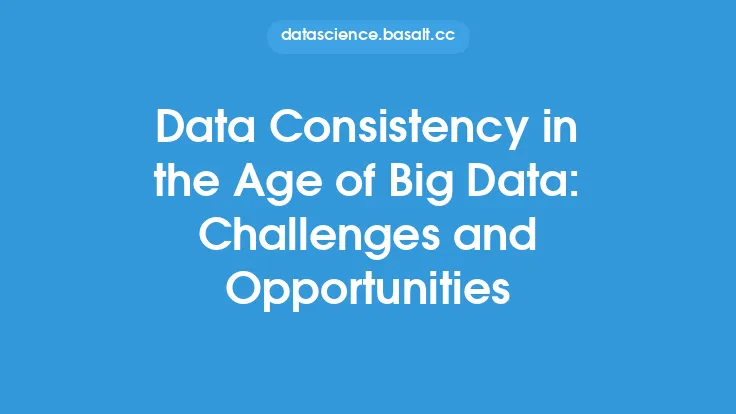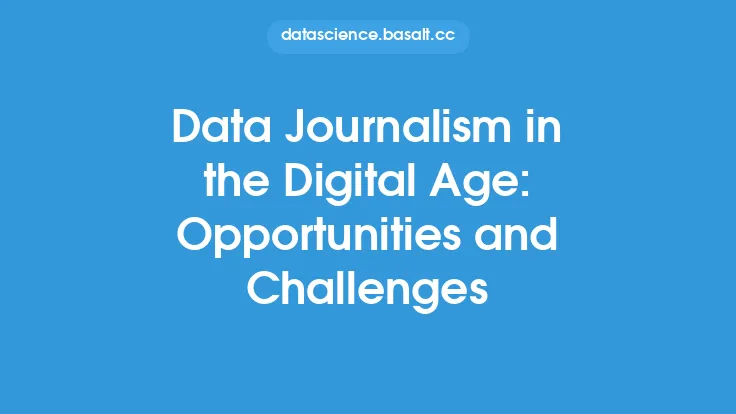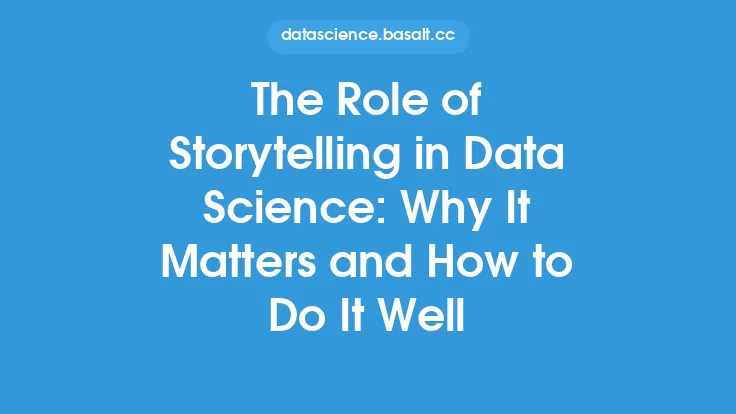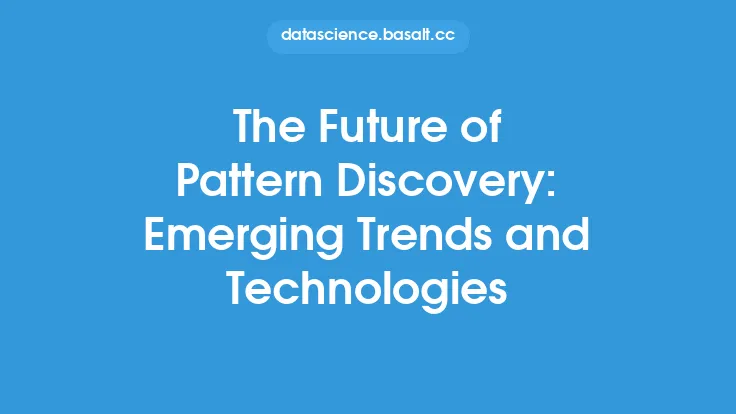The rapid advancement of technology has led to an explosion in the amount of data being generated, collected, and analyzed. This era of big data and artificial intelligence (AI) has brought about numerous benefits, including improved decision-making, enhanced customer experiences, and increased operational efficiency. However, it also raises significant concerns regarding data privacy, security, and governance. As a result, the evolution of data policy has become a critical aspect of data governance, requiring organizations to adapt and respond to the changing landscape.
Introduction to Data Policy Evolution
The evolution of data policy is a continuous process that involves the development, implementation, and refinement of rules, regulations, and guidelines for managing data. It encompasses various aspects, including data collection, storage, processing, sharing, and disposal. Effective data policy evolution enables organizations to balance the benefits of data-driven decision-making with the need to protect sensitive information and maintain trust with stakeholders. This involves staying up-to-date with emerging trends, addressing challenges, and capitalizing on opportunities in the era of big data and AI.
Trends in Data Policy Evolution
Several trends are driving the evolution of data policy, including the increasing use of AI and machine learning (ML) for data analysis, the growing importance of data privacy and security, and the need for greater transparency and accountability in data management. The adoption of cloud computing, the Internet of Things (IoT), and edge computing is also leading to new data policy challenges and opportunities. Furthermore, the development of data policy frameworks and standards, such as the General Data Protection Regulation (GDPR) and the California Consumer Privacy Act (CCPA), is influencing the way organizations approach data governance.
Challenges in Data Policy Evolution
Despite the benefits of data-driven decision-making, several challenges hinder the evolution of data policy. These include the complexity of data ecosystems, the lack of standardization in data formats and protocols, and the need for greater collaboration and coordination among stakeholders. Additionally, the increasing use of AI and ML raises concerns regarding bias, fairness, and transparency in data analysis. The risk of data breaches and cyberattacks also poses a significant challenge to data policy evolution, as organizations must balance the need to protect sensitive information with the need to facilitate data sharing and collaboration.
Opportunities in Data Policy Evolution
The evolution of data policy also presents several opportunities for organizations to drive innovation, improve decision-making, and enhance customer experiences. The use of AI and ML can help automate data management tasks, improve data quality, and provide insights that inform strategic business decisions. The development of data policy frameworks and standards can also facilitate greater transparency and accountability in data management, leading to increased trust and confidence among stakeholders. Furthermore, the adoption of emerging technologies, such as blockchain and edge computing, can enable more secure, efficient, and decentralized data management practices.
Technical Considerations in Data Policy Evolution
From a technical perspective, the evolution of data policy requires a deep understanding of data management technologies, including data warehousing, data lakes, and data governance platforms. It also involves the use of data analytics and visualization tools, such as Tableau, Power BI, and D3.js, to provide insights and inform decision-making. The development of data policy frameworks and standards, such as the GDPR and CCPA, also requires a technical understanding of data protection and privacy regulations. Additionally, the use of AI and ML for data analysis raises technical considerations regarding data quality, bias, and fairness, as well as the need for explainability and transparency in AI-driven decision-making.
Best Practices for Data Policy Evolution
To drive effective data policy evolution, organizations should adopt several best practices. These include establishing a clear data governance framework, developing a comprehensive data policy, and providing training and awareness programs for employees. Organizations should also prioritize data quality, security, and privacy, and establish processes for data sharing, collaboration, and decision-making. The use of data analytics and visualization tools can also help provide insights and inform decision-making, while the adoption of emerging technologies, such as blockchain and edge computing, can enable more secure, efficient, and decentralized data management practices.
Future Directions in Data Policy Evolution
The future of data policy evolution will be shaped by several factors, including the increasing use of AI and ML, the growing importance of data privacy and security, and the need for greater transparency and accountability in data management. The development of data policy frameworks and standards, such as the GDPR and CCPA, will continue to influence the way organizations approach data governance. Additionally, the adoption of emerging technologies, such as blockchain and edge computing, will enable more secure, efficient, and decentralized data management practices. As data policy continues to evolve, organizations must stay agile, adapt to changing trends and challenges, and prioritize the needs of stakeholders to drive innovation, improve decision-making, and enhance customer experiences.





